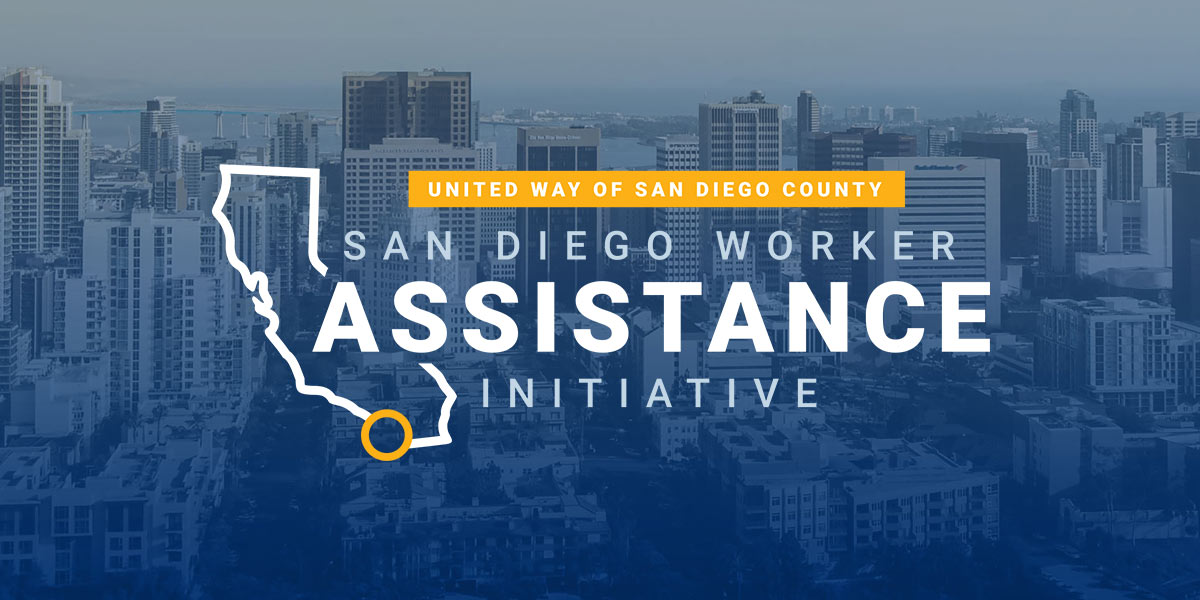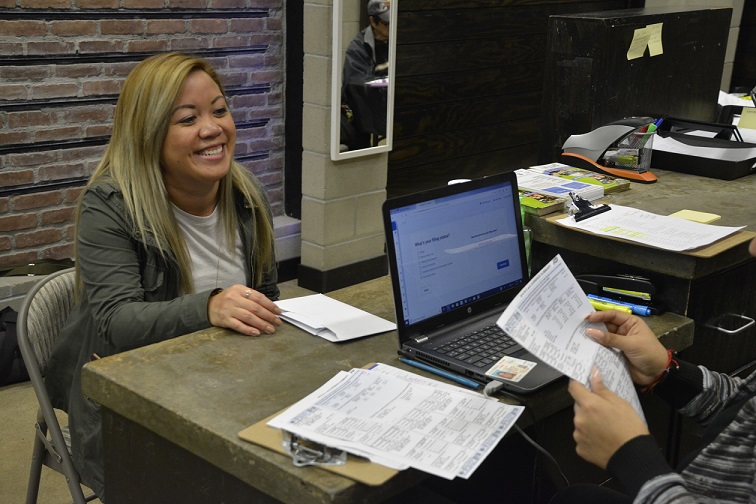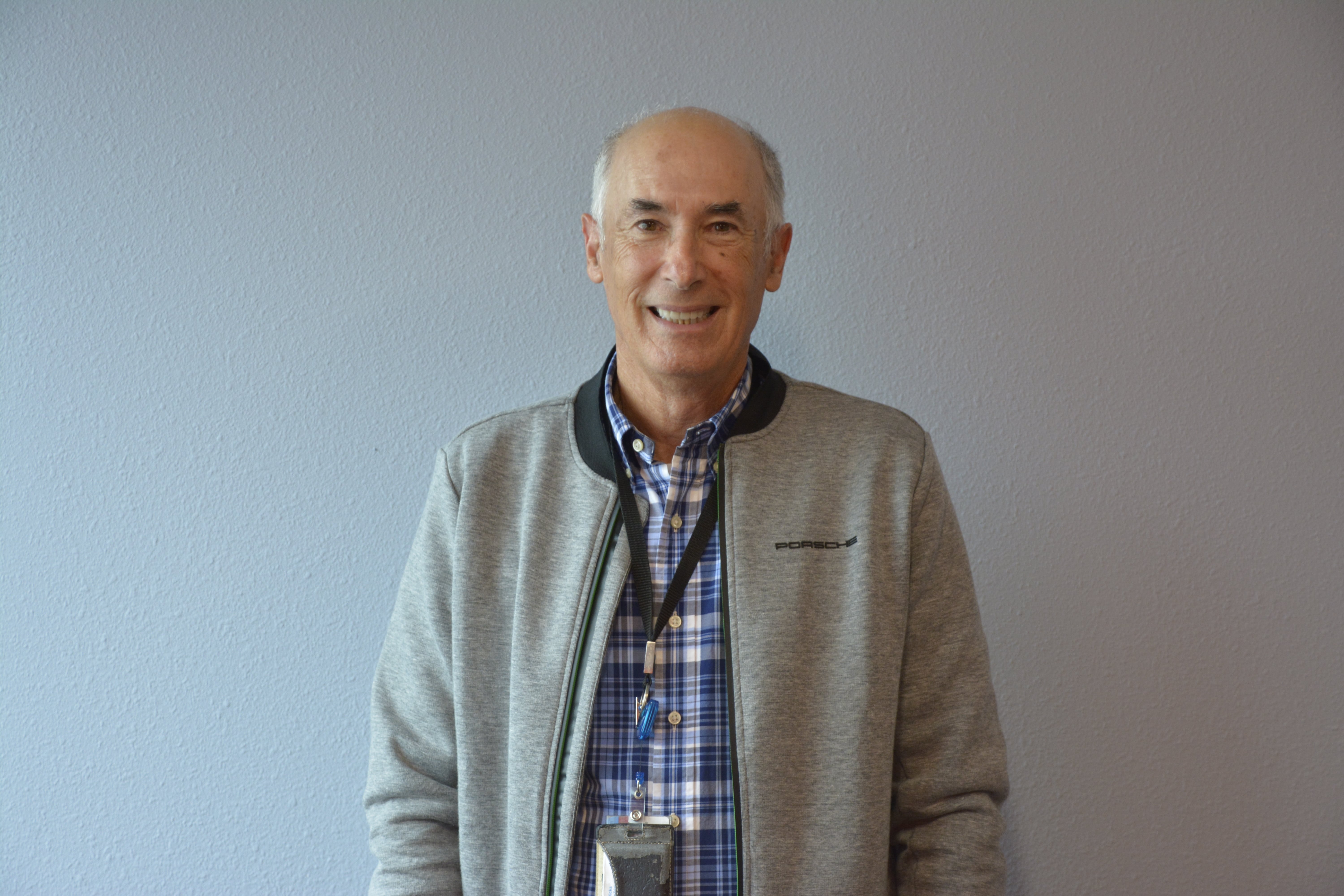San Diegans Desperately Need COVID-19 Relief: How UWSD Is Helping
San Diegans Desperately Need COVID-19 Relief: How UWSD Is Helping

The Toll Coronavirus is Taking On Our Community
The current Coronavirus crisis can be very stressful for people. We’ve suddenly changed our way of life to prevent the spread of what can be a deadly virus. Around the world and in our own community, daily life has drastically changed. People are experiencing fear of getting sick. Fear for their loved ones, especially vulnerable individuals, such as the elderly and immunocompromised. People are stocking up on food and supplies, such as toilet paper and hand sanitizer. Stores that are open are struggling to keep shelves full. There’s a lot of uncertainty right now. For the most vulnerable in our community, there’s also fear of losing basic necessities such as food and shelter because of lost income.
Not Everyone Can Work from Home or Stop Working
For many, the Coronavirus means working from home. Others aren’t so lucky, as their jobs don’t translate to remote work. Consider the people who work in the industries currently shutdown by California’s shelter-in-place order. If you take tickets at the movie theater, you can’t do that from home. If you work at a theme park, you can’t do that from home. Even if you work in a restaurant that’s staying open, your tips may have dried up seemingly overnight. For many people in our community, tips are integral to their economic security.
Some people are working jobs on the frontlines of the crisis, whether in healthcare or at a grocery store, convenience store, or other necessary business. But they too, can be unlucky. If an individual or a loved one is sick, they may need to take unpaid time off work.
The problem isn’t just translating jobs to remote work. It’s lost work.
Already, 1 in 5 US workers has experienced layoffs or reduced hours
UWSD always has a pulse of what’s going on in our community, and now is no different. We are directly witnessing the strain Coronavirus is causing people who are economically vulnerable – people living paycheck to paycheck. This aligns with what we are seeing across the United States:
- 18%, or 1 in 5 US workers, has experienced layoffs or reduced hours (LA Times, Survey released by NPR, PBS NewsHour and Marist)
- The number is higher – 25% – for individuals making less than $50,000 a year
During our 100-year history, we have always been here for those who need additional support, and the current health crisis of Coronavirus is no different.
The Worker Assistance Initiative
As part of the COVID-19 Community Response Fund, United Way of San Diego County is hosting a Worker Assistance Initiative (WAI) – specifically designed to support individuals in need. The Initiative provides flexible resources to individuals impacted by layoffs and reduced working hours implemented by employers in response to crisis situations and emergencies.
We are working together with our partners to care for those who need it most. But we need your help, too.
How It Works
Here’s how we’re helping people pay their bills:
- Individuals and organizations donate to the Worker Assistance Initiative
- Applicants tell us what bills they have, and who needs to be paid using an English or Spanish application
- UWSD directly pays landlords, mortgage companies, and utility providers
Currently, the need is outpacing supply
We are getting flooded with applicants looking for relief. Hundreds of San Diegans applied on the first day alone and the number of applicants is now over 3,000, with more than $4,277,430 in support requested. What we are hearing is that people in our community are experiencing a sudden and severe impact on their income that will affect their ability to cover basic necessities for their families. This includes:
- Getting sick with no paid leave
- Losing the job of the family’s only breadwinner
- Needing to stay home, without PTO or sick time, to protect a family member with cancer who is immunocompromised
People who are experiencing this kind of financial burden come from all kinds of jobs, including restaurants, real estate, hair stylists, health care, drivers for rideshare companies, transportation, events, hospitality, hotels tourism, education, childcare, fitness studios/gyms, bookkeeping, pet care, retail, construction, landscaping, beauty, personal care, massage, and more.
Why Is United Way of San Diego County (UWSD) Uniquely Positioned to Deliver on This?
UWSD is uniquely positioned to process and deploy capital quickly and efficiently to individuals, as we currently administer SDG&E’s Neighbor to Neighbor Fund. The WAI is designed to complement the work of public health officials and to ensure funding for the basic needs of utility bills and rent/mortgage payments to prevent the need to enter the social services system of care and prevent homelessness.
This type of collaboration between community partners, including nonprofits, businesses, and social service organizations, is what UWSD does year-round. We are experts in identifying where the greatest need is, aligning partners, and leveraging resources. We hope you will join us.
What Can You Do?
Take action! There are many ways to help, including:




